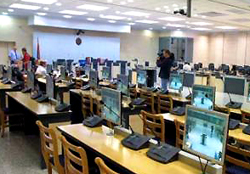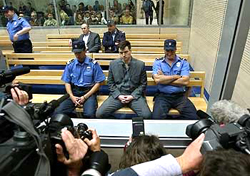
Judiciary and the media after reforms

Serbian judiciary has been criticized for years by experts and Europe, and most of all by citizens of Serbia. In the beginning of the year, the first judiciary reform in 60 years was completed. New courts have been formed, as well as new prosecutor's offices, while the judges went through a general election. Judicial employees are still adapting themselves to the newly established network of courts, and the citizens will certainly need more time for such effort. At this point, the media and journalists play a crucial role while fulfilling their obligation to accurately and precisely inform the public.
The often-mentioned inclination to depoliticize the judiciary could also be applied to the media with regard to reporting on investigations and court proceedings. Journalists have to avoid being used for propaganda purposes in such a sensitive area. Of course, I don't have in mind any kind of censorship or limitation of rights, but quite the opposite – dissemination of information on precise terminology that would protect journalists from pressures and possible lawsuits. We must not allow any side in the proceedings to take advantage of us in order to further their campaigns. Most of all, investigative journalism entails a journalist who knows his trade and who is capable of investigating, reporting and commenting on any story, any court trial or verdict, in a way that is accessible to an average citizen of Serbia, while at the same time avoiding lawsuits.

Journalists in Serbia find themselves in a difficult position with regard to reporting from trials. First, the legal rule that stipulates that each court trial must be open to public applies only to those who attend the trial. This rule does not include journalists – any form of recording or photographing are practically forbidden, and we are forced to look for ways to make our stories more attractive without making any mistake that would turn us into defendants. However it may be difficult to work in such circumstances, it is possible.
There is another problem: there are only a few judges who understand that it is in their own interest to talk to journalists, since that allows communication with the citizens of Serbia. One of renowned European prosecutors once told me that he had always been willing to talk to the media. Surprised, I asked him why, to which he replied: "The mafia will always be prepared to talk to the public. If I don't do the same, it is highly probable that I would lose the battle." The main question is – how many battles are in this war?
The officials promise that justice (at least the court justice) will be served in an easier and more efficient manner. Whether this is actually true or not will be decided by the public, which usually forms its viewpoint on the basis of media reporting. And how do we do our reporting?
Senka Vlatkovic Odavic
MC Newsletter, June 18, 2010
View all comments (0) Leave a comment
Published comments contain opinions that are not the opinions of Media Center. Responsibility for the content of messages and their accuracy lies on the website users who posted them.
 |
| The content of this article does not necessarily reflect the view of the Media Center. The author bear full responsibility for the content of the text. |




